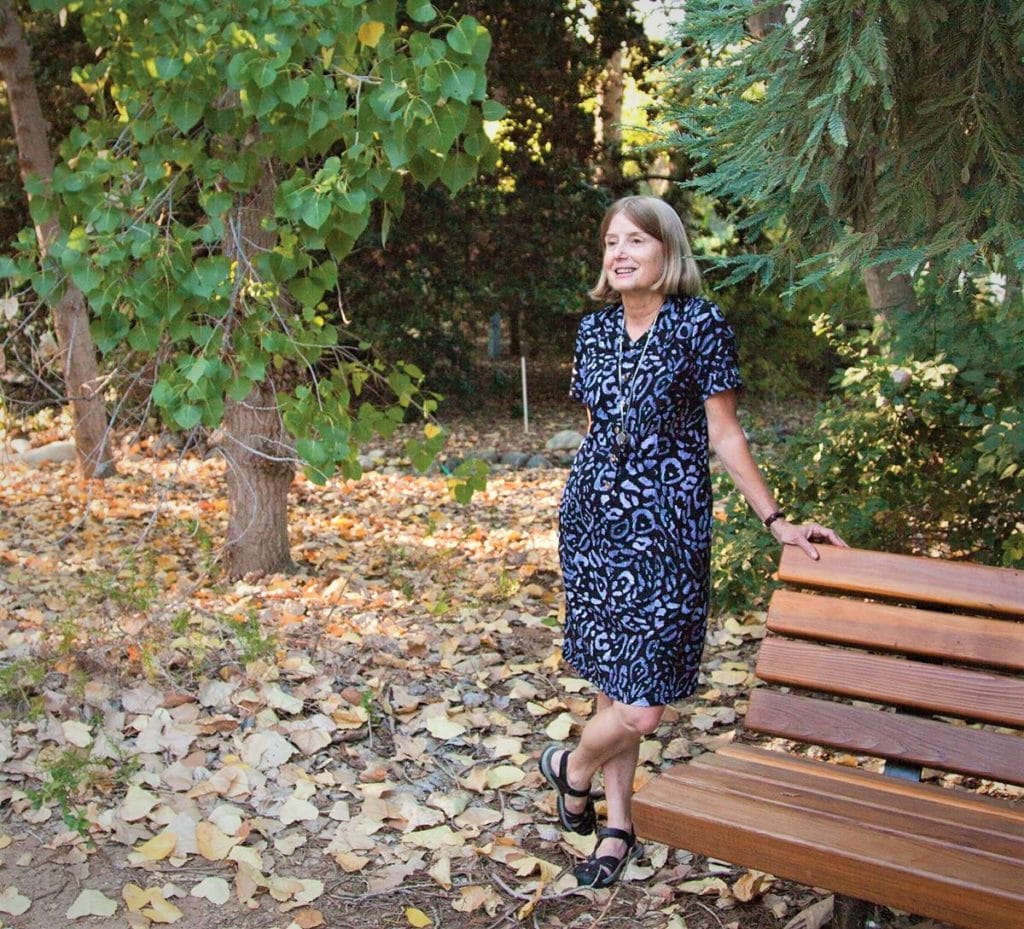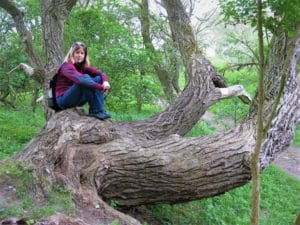Botany’s McDade Receives Society’s Highest Honor

Lucinda McDade has come a long way from when, as a youngster, she discovered her “green thumb” by planting an avocado seed in her South Florida backyard and watching it grow into a small tree that effectively dislocated her mother’s clothesline. Call it her “Jack and the Beanstalk” epiphany.
“I learned quickly that sometimes what you plant can come up quickly and grow bigger than you think, so you need to think through where you’re going to plant things,” explains McDade, who chairs CGU’s Botany Department as well as serving as Judith B. Friend Director of Research and executive director of the California Botanic Garden. “I grew up at a time when kids ran wild like little savages all summer long. We gathered things, tried to keep lightning bugs alive, caught land crabs—and we grew stuff.”
Those experiences in her youth translated into a very successful career as a botanist who has been recognized with major awards in the field, including being recently named the Liberty Hyde Bailey Award recipient, which is the American Horticultural Society’s highest honor.
The award honors McDade’s lifetime contributions to the field.
The Liberty Hyde Bailey Award goes to a person who has made significant lifetime contributions in at least three of the following horticultural fields: teaching, research, communications, plant exploration, administration, art, business, and leadership.
The award, which is named after horticulturist, educator, and author Liberty Hyde Bailey (1858–1954), took McDade completely by surprise.
“I really had no idea it was coming,” she says. “I received a letter about it, and I was asked not to say anything to anyone for, like, a month.”
When the news finally went public, McDade received an outpouring of positive responses from colleagues and former students.
“A number of my students who had finished their degrees some years ago emailed me to say congrats,” she says. “They could remember me recommending Liberty Hyde Bailey’s Manual of Cultivated Plants as a totally amazing book. So they found it somehow appropriate that I got the award.”
McDade began her career in earnest as an undergraduate at Tulane University, where she was mentored by Arthur Weldon, who encouraged her to pursue a career in botany.
“I was lucky enough to give a talk at Tulane some years after I finished my degree, as a bonafide card-carrying scientist,” she says, “and I was able to thank him publicly in the context of the seminar.”

Climate Change & Other Serious Threats
Since coming to CGU in 2006, McDade has worked hard to establish ties with other CGU disciplines.
“We don’t really fit into any of the other schools,” she says. “I’ll have a friendly argument with the mathematicians, but aside from them, we’re the university’s only natural science programs. There are lots of social science at CGU, but, as biologists, we’re in an area that’s really quite different.”
According to McDade, climate change and habitat destruction are the greatest threats facing plant life.
“They go hand in hand,” she says. “Think about it in the context of the Los Angeles basin. Let’s say there are populations of plants and animals that occur along the southern coast of California and they need to move further north because their proper habitat is migrating north. How are they going to naturally move across the entire populated concrete and asphalt of the L.A. basin? They’re not going to be able to do that.”
McDade says another serious concern relates to the mountainous regions of California.
“There is special concern for plants that occur at high elevations because, as the climate warms, these plants need to move higher,” she explains. “But if they’re already on the tops of mountain ranges, they have no place to go. They are literally between a rock and a hard place!”
Currently McDade is immersed in various kinds of plant research of the type that the American Horticultural Society found fit to recognize with its highest award.
“I’ve been able to build a good network of people who collaborate on projects together, so, we’ve got a lot of great things going,” she says with an enthusiasm that’s almost infectious. “I have a post-doc who’s also a research assistant professor at CGU, and we’re working on just a terrific project that involves an incredibly and richly diverse branch of the family tree of Acanthaceae that have flowers that vary in lengths from about ¼ of an inch to 6-8 inches and are pollinated by everything from tiny little bees, moths, and butterflies to hummingbirds. It’s all so super exciting!”
It’s funny what can take root from a tiny avocado seed.
- Learn more about CGU’s Botany Department